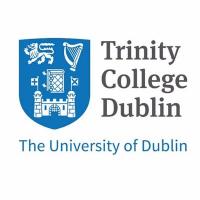Neuroscience (M.Sc.)
Course Description
Neuroscience is a discipline concerned with the scientific study of the nervous system in health and disease. Research in the neurosciences is of considerable clinical impact considering the debilitating and costly effects of neurological and psychiatric disease. In this regard, a major goal of modern neuroscience research is to elucidate the underlying causes (genetic or environmental) of major brain diseases, and to produce more effective treatments for major psychiatric disorders such as schizophrenia and depression, and neurological disorders such as multiple sclerosis, Parkinson's disease, Alzheimer's disease, motor neurone disease and epilepsy. Improved treatment strategies for brain disorders relies entirely on increased understanding gained from research which integrates molecular, cellular and clinical aspects of disease. In this regard it is clear that interdisciplinary approaches are necessary to understand the complex processes which underlie brain function in health and disease. This interdisciplinary philosophy is adopted in the delivery of our M.Sc. programme in Neuroscience, which is underpinned by the diverse research expertise available within Trinity College. The M.Sc. course in Neuroscience is held in the Department of Physiology, School of Medicine, located within Trinity College Institute of Neuroscience (T.C.I.N.) and Trinity College Biomedical Sciences Institute (T.B.S.I.).
Course Content:
This one-year M.Sc. course aims to provide a multidisciplinary training in the neurosciences, in topics ranging from molecular to behavioural. The course is ideal for students wishing to extend their specialised knowledge, and for those wishing to convert from their original degree discipline. The programme will equip participants with the skills necessary to progress into a career in biomedical, pharmaceutical or neuropsychological research. Instruction for the course consists of approximately 200 contact hours over two academic Terms to include lectures, laboratory practical sessions, journal club workshops and student-based seminars. Modules are assessed by a mixture of in course assessment and written examinations.
Those with some knowledge in neuroscience and pharmacology will be most suitable for the one-year intensive course. Those with little understanding in neuroscience and pharmacology will be most suitable for the two-year course.
Specialist modules covered include:
Form and Function of the Nervous System, Biochemical Basis of Neuropharmacology, Neuropharmacology, Drug Development, Neuroimmunology, Experimental Neuroscience, Current Experimental Techniques, Cellular Neuroscience, Journal Club, Literature Review, Neuroimaging, Neural Engineering, Statistical Skills, Experimental Research Skills, Clinical Research Neuroscience.
The third Term consists of a research project on novel aspects of Neuroscience. The School of Medicine, Trinity College Biomedical Sciences Institute and Trinity College Institute of Neuroscience collectively form a dynamic research environment with research spanning molecular/cellular neuroscience to clinical/translational neuroscience. Projects across these research areas may be undertaken in consultation with an expert supervisor. For students interested in a project in cellular/molecular neuroscience a range of cellular techniques such as tissue culture, immunocytochemistry, western immunobloting and immunoprecipitation, confocal microscopy, Immunoassays, flow cytometry, Real-time PCR, and high performance liquid chromatography are available. In addition, some projects will involve assessing behavioural, electrophysiological and neurochemical endpoints using in vivo models of neurological and psychiatric disease. For those with an interest in experimentation on human subjects, projects will be offered utilizing techniques such as functional magnetic resonance imaging and neurocognitive testing. A selection of national and international projects is also available, which involve collaboration with other academic institutes and pharmaceutical companies, in Ireland, UK and across Europe.
The course runs for 1 year full time or 2 years part time, normally starting in the last week of September and running to the first week of July in the following year. The Research Project is based on some novel aspect of Neuroscience and takes place in the final term on the course.
Intakes
- Jan
- Sep
Application Processing Time in Days: 30
Minimum English Language Requirements
| English Level Description | IELTS (1.0 -9.0) | TOEFL IBT (0-120) | TOEFL CBT (0-300) | PTE (10-90) | |
|---|---|---|---|---|---|
| Expert | 9 | 120 | 297-300 | 86-90 | |
| Very Good | 8.5 | 115-119 | 280-293 | 83-86 | |
| Very Good | 8 | 110-114 | 270-280 | 79-83 | |
| Good | 7.5 | 102-109 | 253-267 | 73-79 | |
| Good | 7 | 94-101 | 240-253 | 65-73 | |
| Competent | 6.5 | 79-93 | 213-233 | 58-65 | |
| Competent | 6 | 60-78 | 170-210 | 50-58 | |
| Modest | 5.5 | 46-59 | 133-210 | 43-50 | |
| Modest | 5 | 35-45 | 107-133 | 36-43 | |
| Limited | 4 | 32-34 | 97-103 | 30-36 | |
| Extremely Limited | < 4 | < 31 | < 93 | < 30 |
Job Opportunity Potential
If you are an international student studying at Trinity, you might be considering internship and graduate work in Ireland, in your home country, or elsewhere. This section provides information for Non EU students on working in Ireland during and after your studies. For information and resources to support an international job search, see our Devex resource which includes international job search advice and information.
Employers value candidates who have more to offer than a good degree with high grades. They look for students who are well rounded and who have experience outside the classroom. Search for and take advantage of opportunities to gain experience, develop your skill set, and gain a clearer picture of what you like and don't like in terms of career options.
For example, you can get involved in some of the many student clubs and societies in college, volunteer or get a part time job. Remember that voluntary work is as valuable as paid work on your CV or resume - it's a great way to demonstrate your skills to future employers. Have a look at the TCD Civic Engagement website and check out volunteering opportunities in Ireland and abroad.
PSW Opportunity
- 2 Years
Admission Requirement / Eligibility Criteria
Postgraduate Admission Requirements
Postgraduate work in Trinity is academically challenging and the University has high academic entry requirements.
Applicants will need to:
hold at least a 2.1 honors degree from an Irish university or equivalent result from a university in another country.
display a high level of competence in the English language in one of the examination systems recognised by Trinity College Dublin.
To qualify for admission to a degree course at the University you must meet the requirements outlined above. For more information on what you must include in your application, please see our detailed guide on Making an Application.
Postgraduate English Language Requirements
All applicants whose first language is not English and who have not been educated through the medium of English must present one of the following qualifications in the English language:
IELTS (Academic version) and IELTS Indicator : Grade 6.5 overall.
TOEFL and TOEFL iBT Special Home Edition: 88 internet-based, 570 paper-based, 230 computer-based.
University of Cambridge:
Proficiency Certificate, Grade C or better (CEFR Level C1 or C2)
Advanced Certificate, Grade C or better (CEFR Level C1 or C2)
Pearson Test of English (Academic) - PTE Academic: a minimum score of 63 to be eligible (with no section score below 59)
Duolingo English Test: minimum overall score of 120/160 with no section below 105, dated since January 2020
An award certificate with a minimum II.1 overall score from Trinity's Centre for English Language Learning and Teaching's Pre-Master's Pathway Programme. The Pre-Master’s Pathway Programme is an academic English course for international students with conditional offers for postgraduate study at Trinity. Passing the programme means you meet Trinity’s English language requirement and can progress to your postgraduate course without retaking IELTS or any other exam.
Please also note that existing IELTS, TOEFL, Cambridge and PET scores up to two years old will be accepted for 2023/24 applications in light of test centre closures.
- Course Type: Full Time
- Course Level: Masters/PG Degree
- Duration: 01 Year
-
Total Tuition Fee:
24240 EUR
Annual Cost of Living: 10500 EUR
Application Fee: 55 EUR
Similar Programs
- Computer Science - Data Science (M.Sc) at Trinity College Dublin
- Statistics and Sustainability (M.Sc) at Trinity College Dublin
- Quantum Science and Technology (M.Sc) at Trinity College Dublin
- Health Policy and Management (M.Sc.) at Trinity College Dublin
- Global Mental Health (M.Sc.) at Trinity College Dublin
- Applied Social Data Science (M.Sc.) at Trinity College Dublin

